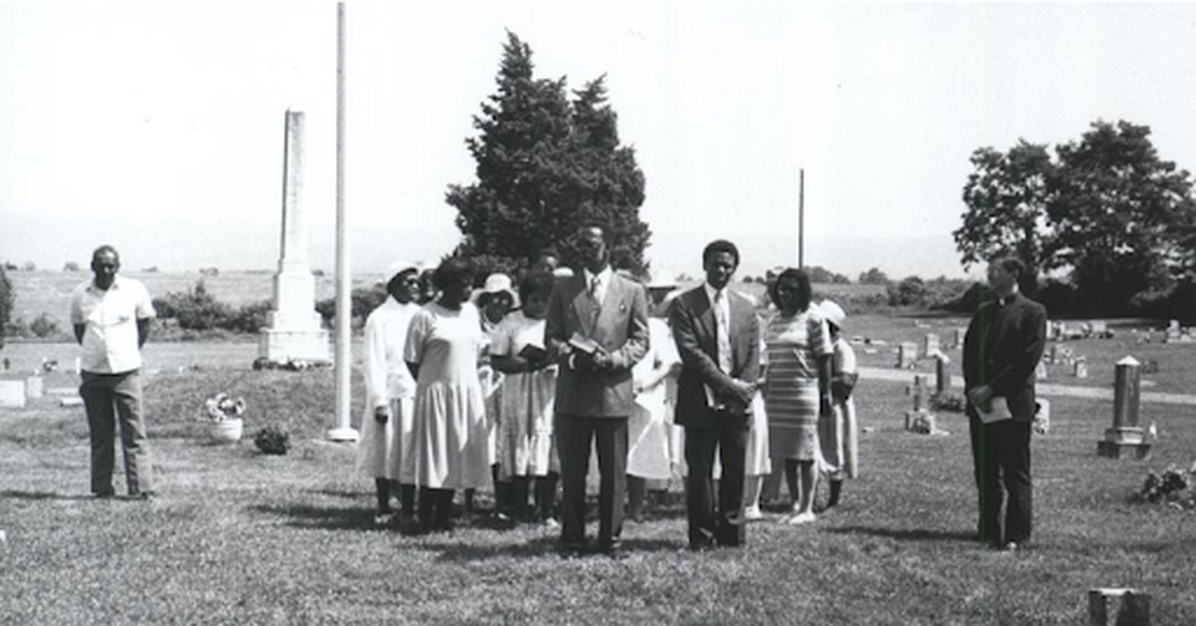Intersection of Bishop Mead Road and Millwood Road
|
Last updated on May 20, 2024
|
The Millwood area includes three sites:
- 14A: Millwood Colored School at 160 Millwood Road
- 14B: Shiloh Baptist Church at 1983 Millwood Road
- 14C: Guilfield Baptist Church at 2314 Millwood Road
Directions from Browntown to site 14:
- Continue along VA-255 for 1 mile
- You will arrive at a T in the road, this is the center of Millwood
- To the left are the Locke Store and Burwell-Morgan Mill
- Parking is available at these places, and visitors are encouraged to visit both places
- Cunningham Ln is just to the east of Locke Store, but visitors are not encouraged to drive along it
The village of Millwood is full of African American history. Although not a haven of Free(d) Blacks during the antebellum years as often claimed, the African American population in the village bloomed in the years after Emancipation. In the early 1870s, the estate of George H. Burwell (of Carter Hall) sold off several plots of land lying along Bishop Meade Road, including five lots on the east side of what is Cunningham Lane. Those five lots were all purchased by African Americans, many of whom were enslaved within the county. African American development also centered on the west end of Millwood Road. Many of these vernacular log and frame dwellings are owned by descendants of the original owners.
The dry-stacked stone walls visible along the drive to Millwood as well as throughout the rest of the county, encircle former plantations and were built by enslaved labor.
The dry-stacked stone walls visible along the drive to Millwood as well as throughout the rest of the county, encircle former plantations and were built by enslaved labor.
|
Millwood Colored School, on the west end of the village, is a one-story, two-room, frame school that was constructed ca. 1910 for the African American community of Millwood using funds donated by local citizen Graham F. Blandy of the nearby Tuleyries estate. The school's contribution to African Americans in Millwood from its earliest founding until it was closed in 1952 marked a period of 83 years, during which time children not only learned to read and write but also learned trades and were exposed to educated blacks who served as role models. After the Millwood Colored School closed in 1952, the Millwood Good Will Association purchased the building. The School was placed on the National Register of Historic Places in 2000.
|
|
|
Built in 1892, the T-shaped stucco church with a square steeple sits along Millwood Road (Route 723), just west of the Millwood post office. The building was purchased by Shiloh Baptist Church for $1,500 in 1921. Guilfield Baptist Church is another historic African American church in the area.
|

